| Reviews & Columns |
|
Reviews DVD TV on DVD Blu-ray 4K UHD International DVDs In Theaters Reviews by Studio Video Games Features Collector Series DVDs Easter Egg Database Interviews DVD Talk Radio Feature Articles Columns Anime Talk DVD Savant Horror DVDs The M.O.D. Squad Art House HD Talk Silent DVD
|
DVD Talk Forum |
|
|
| Resources |
|
DVD Price Search Customer Service #'s RCE Info Links |
|
Columns
|
|
|
Tokyo Story: Criterion Collection
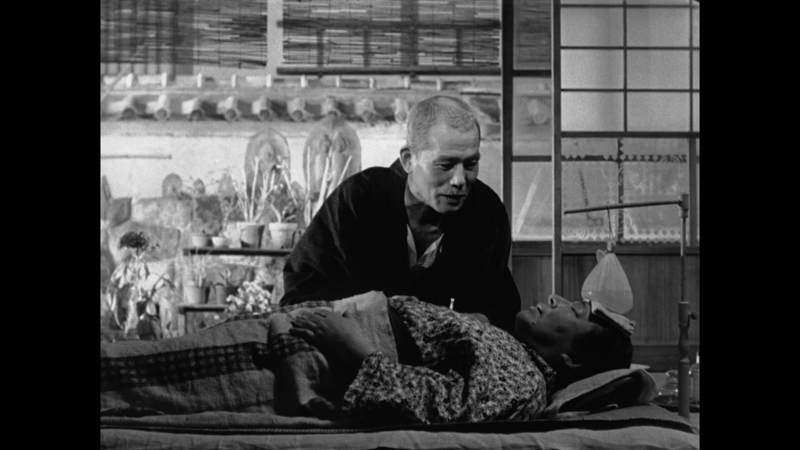 Some people love movies for pure escapism and larger-than-life spectacle, but they don't get much more "ordinary" than Yasujiro Ozu's Tokyo Story (1953). The prolific director made a successful career out of meditative, character-driven films that feature little or no camera movement, natural settings and realistic events that may or may not remind us of our own everyday lives. Some fans cite Tokyo Story as the most refined example of Ozu's post-silent era style, though it's undoubtedly his most popular. Like many of his films, though, Tokyo Story crosses language and cultural barriers effortlessly from start to finish, easing us into its particular world before reminding us that we're already a part of it. The story is simple: an elderly couple (Chishu Ryu and Chieko Higashiyama) visits post-WWII Tokyo for a visit with their children and grandchildren. It's established quickly that time and distance have already worn away the edges of their relationships with one another. Most of the kids are busy with their own families or careers and, more often than not, have little interest or time for entertaining their elderly parents. Eventually, tragedy strikes and the remaining family members are left wondering why they didn't have their priorities straight. If left unchecked, most of us will eventually share one or both of these fates: from a younger perspective, once we're taught to take care of ourselves we have a nasty habit of doing it all the time. As we grow a little older, an "in-law apartment" might be as close as we ever let our parents get. Before long, a monthly phone call or an occasional visit to the nursing home is enough. Yet while this generational gap seems doomed to repeat itself (even more so, undoubtedly, as the world gets busier), Tokyo Story reminds us that it doesn't have to be that way. Sometimes even a gentle nudge can prompt change if there's enough room for it, which is exactly why Ozu's film works as well as it does. It's also a safe bet that Tokyo Story will continue to affect viewers, even though more than six decades have passed since its original release. It's not preachy, it's not overly manipulative, and its silent moments are more powerful than a heated debate. Criterion's 2003 DVD marked the film's Region 1 debut in that format, so it's fitting that they've also authored its first domestic Blu-ray release. As part of the studio's first wave of "Dual-Format Editions" (read: "combo packs"), this three-disc set will appeal to those inching towards a jump to high definition and mildly irritate those already have. Either way, it's tough to complain: featuring a top-tier A/V presentation, an assortment of lengthy and informative extras (including a new one) and elegant packaging, it's the definitive edition of a film that's held in high regard.
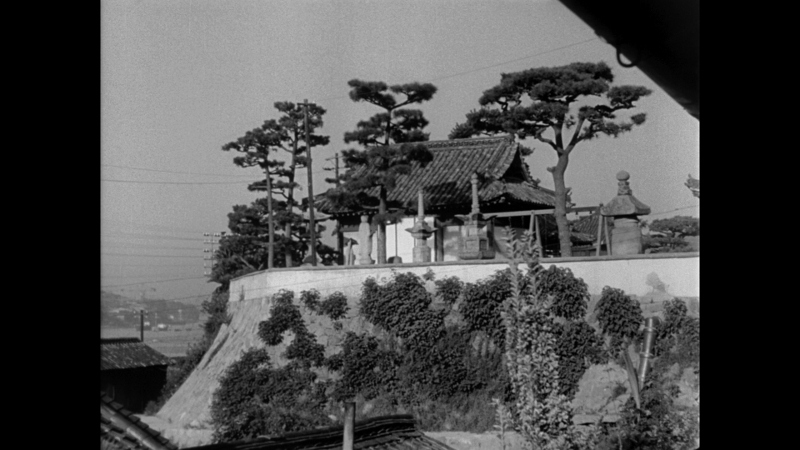
Tokyo Story features a brand new digital transfer from the recent (2013) 4K restoration supervised by assistant cinematographer Takashi Kawamata. Presented in the film's original 1.33:1 aspect ratio, the resulting image looks as good as it probably ever will for the foreseeable future. Ozu's trademark low and stationary camera shots appear stable and rich with detail, even though the majority of Tokyo Story was filmed indoors under natural lighting conditions. Black levels are fairly consistent, no flagrant digital imperfections were spotted and a pleasing layer of film grain is also visible from start to finish. The source material obviously wasn't in perfect condition but die-hard fans will be uniformly pleased with Tokyo Story's stable appearance in high definition, especially compared to Criterion's own 2003 DVD release.
DISCLAIMER: The screen captures featured in this review are strictly decorative and do not represent Blu-ray's native 1080p image resolution. The Japanese LPCM 1.0 mono track is perfectly acceptable overall, as neither the dialogue nor Kojun Saito's original music fights for attention. A few light hisses and pops can be heard along the way and the dynamic range is a little thin, but it's nothing major and the studio undoubtedly did what they could to clean up the fragile source material. Optional English subtitles are presented during the main feature for Japanese audio and partial text translation only.
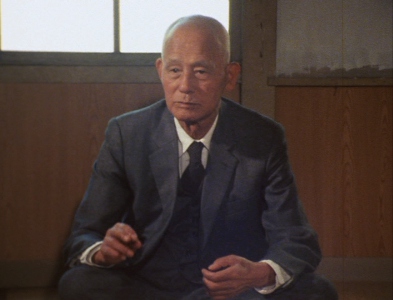 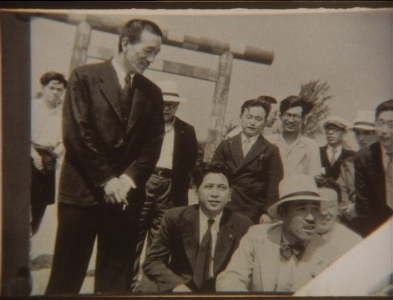
The recycled supplements also fit neatly onto the Blu-ray, bringing the total running time of this disc to just under six hours; even longer if you count the Audio Commentary with University of Illinois professor David Desser. "Talking With Ozu" is a 1993 mini-doc that celebrates the director's impact through the words of his contemporaries and influences. The centerpiece of the recycled supplements is "I Lived, But...", a feature-length 1983 documentary that celebrates the life and career of the director; featuring input from friends, colleagues and family members (as well as plenty of short clips from his extensive body of silent and "talkie" films), it's an exhaustive examination of the man behind so many groundbreaking films. All applicable bonus features include optional English subtitles for translation purposes only.
Criterion's excellent track record on Blu-ray continues with Tokyo Story, a welcome update of their own 2003 DVD. Featuring an excellent transfer sourced from a new 4K restoration with an assortment of quality supplements (and even a new one), it's a well-rounded and versatile package that Ozu fans will enjoy for years to come. Tokyo Story, long considered a classic of Japanese cinema, is emotionally affecting in different ways during the progressive stages of life; this time around, it hit me just a little bit harder. Highly Recommended for new and established fans.
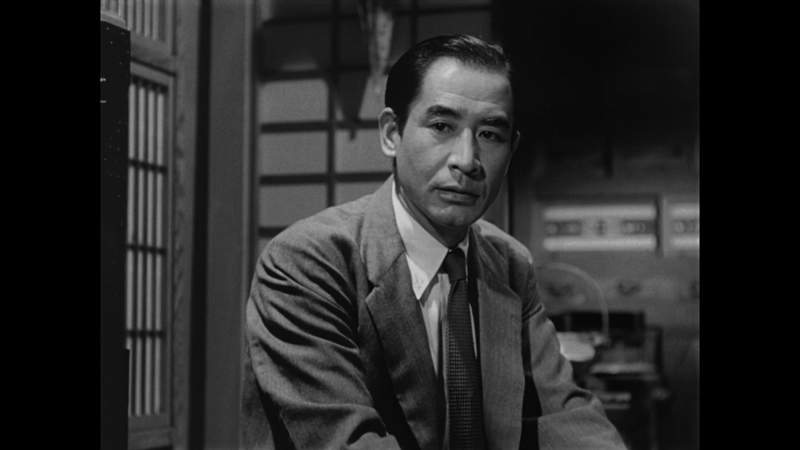 |
|
| Popular Reviews |
| Sponsored Links |
|
|
| Sponsored Links |
|
|
| Release List | Reviews | Shop | Newsletter | Forum | DVD Giveaways | Blu-Ray | Advertise |
|
Copyright 2024 DVDTalk.com All Rights Reserved. Legal Info, Privacy Policy, Terms of Use,
Manage Preferences,
Your Privacy Choices | |||||||













